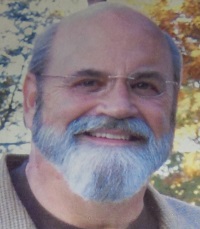Process
Linda uses a strength-based process to build resiliency factors in individuals/systems and to effect behavioral change at different levels. Resilience is a complex term with many definitions. Maluccio (2002) is a researcher in this area and states, �Resilience refers to the operationalization in practice of the strengths perspective, which stresses the capabilities, assets, and positive attributes of human beings rather than their weaknesses or pathologies� (p.596). He reinforces this position at the conclusion of his review when he makes the statement, ��striving toward growth and self-fulfillment�. Resilience consists of a balance between stress and the ability to cope. Lock and Janas (2002) state, �The essence of resiliency is the ability to bounce back from adversity, frustration and misfortune� (p.117). Resilience is essentially capsulated in the statement, �It is not what happens, it is how we act on what happens�.
Normalizing psychotherapy as improving overall health of mind and body is necessary. Many fear the term psychotherapy. A health coach is like a personal trainer that provides support, guidance, and encouragement to manage lifestyle related health risks at home and in the workplace. Managing lifestyle improvements can be difficult. It is the capacity to use the training received via mental health education and knowledge or behavior that both Linda and Tom provide in their practice of therapy.
Lock, R. and Janas, M. ( 2002). Build resiliency. Intervention in School and Clinic, 38 (2), 117.
Maluccio, A. (2002). Resilience: A many-splendored construct? [Review of the book Resiliency-An integrated approach to practice, policy, and research]. American journal of Orthopsychiatry, 72(4), 596-599.
Close This
Foundation
Linda has conceptualized a model that is three tiered. The bottom tier is self-responsibility. The middle tier consists of patterns, defenses, and dynamics. The top tier is thoughts, feelings, and behaviors. Learning how to integrate and manage the tiers is what constitutes resilience and health.
Close This
Credentials
Linda holds her Master�s degree in Social Work and is a licensed Marriage and Family Therapist, a Certified Advance Addictions Counselor, and a Clinically Certified Forensic Counselor. She has completed all of the course work for a PhD in Health Psychology and is considered ABD PHD in Health Psychology. Her dissertation was titled �An analysis and evaluation of resiliency factors in individuals who experience chronic pain�. The populations she is studying are those individuals who are diagnosed with Fibromyalgia, Rheumatoid Arthritis, and Migraine without aura.
She wrote �An analysis of the etiology, causes, and management of juvenile offenders� that is published.
Read it here in Adobe PDF

Thomas holds his Master's degree in Social Work, is a licensed Marriage and Family Therapist, and Certified as an Expert Forensic Exampiner.
Close This
Service
Linda has spent her life serving others. Her experience as a Surgical Technician trained in the Army, a Police Officer, a Pharmaceutical Sales Representative, a Psychotherapist, and manager of Mental Health Clinics, allows her to approach her work from many different perspectives. The common thread within all of these careers is service to and for other�s.
Thomas has spent his life serving others. He was a Captain in the Army and received an Honorable Discharge. He was at Lafayette Clinic in Detroit while with the State of Michigan. He retired with over 30 years of service while with the State from The Center for Forensic Psychiatry and continues in private practice that began over 30 years ago in Ann Arbor, MI.
Close This
Teaching
Since 1991, Linda gave presentations, lectures, and workshops to diverse community groups including the Department of Human Services, Community Mental Health, Department of Corrections & Probation, the Alano Club, churches, and the medical community. She partnered with Washtenaw Community College offering courses to professionals in the field to meet their continuing education requirements.
Some of the topics from prior workshops include:
- Resiliency
- Trauma
- Sexual & Physical Abuse
- Management of Tension
- Stress Management
- Pain Management
- Conflict Management
- Chemical Dependency
- Addiction
- Mental Health Issues
- Anxiety/Depression
- Life Skills
Close This








